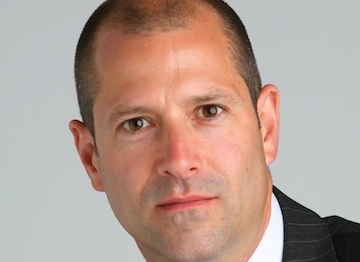Institute of Financial Planning members Alan Smith of Capital Asset Management, Darren Baker of QED Wealth Management and Jason McGuigan of Critchleys Financial Planning explain how they and their firms got ready for RDR.
Alan Smith
Capital Asset Management, London
We took the view that we wanted to be fully RDR-compliant well before the final deadline as, if we discovered any operational or advisory issues, we still had time to resolve them. By January it would be too late which could prove costly.
Our team agreed to go live with our RDR structure and adviser charging on 18 October and conveniently our main platform, Standard Life, did the same. We created a project team and brainstormed all the possible issues that needed to be addressed and built a simple Gantt chart to track our progress against the objectives. Advisers had to ensure their gap fill was complete and request their SPS. Our Client Agreement needed to be reworked and took several drafts (with help from our compliance advisers) to cover the main issues, be as user-friendly as possible and comply with the terminology in the new world.
The level of detail within the management information data required for RMAR reports next year is very significant. We needed to understand precisely what is required and ensure that our processes are set up to efficiently capture it all – I have no doubt the regulator will be reviewing the returns very carefully and looking for anomalies.
We also built a Risk Assessment Matrix to highlight the issues we felt could present some challenges. For example, although we are committed to remaining independent, the uncertainty around the PI market will have a bearing on this next year and will need to be kept under review.
It's going to be a very interesting year next year and something of a relief to know that we are in the driving seat and not merely passengers!
{desktop}{/desktop}{mobile}{/mobile}
Darren Baker CFPCM
QED Wealth Management, Somerset
Getting ready for RDR didn't involve anything too onerous or too painful for us.
The way I've done business, and the Financial Planners I work with, has been in the spirit of RDR for years now. We've always been charging explicit fees that have been agreed with the client.
We're lucky though as we've been making gradual shifts to the new model, like many IFP members have done, while the vast majority of advisers have kept to an old-style commission model because it worked for their business. Unfortunately that means they haven't
had it as easy as us and have had to make fundamental changes to their business models. The intention of the firm is to remain independent but the FSA is always bobbing and changing and I think a lot will come out in the wash over the next year.
Gapfilling took me 20-30 hours, it was mainly reviewing what I already knew but some of it was useful to go over again. I like to think if you've kept to up to date with all your CPD and being a CFPCM professional, the information should not come as any surprise to you. I got my SPS from the IFP.
Unfortunately, while the RDR is a big thing for those in the industry, for the public it will be difficult. Some clients have already been saying their banks have been offering them 'free unbiased advice' when it is clearly tied advice. I think banks will always try to flout the rules and will find loopholes.
Jason McGuigan CFPCM
Critchleys Financial Planning, Oxford, Accredited Financial Planning FirmTM
Our firm has been 'RDR-ready' since 1997 as we could see the RDR coming way before it was even considered by the FSA. We offer our clients a fixed price for the financial plan, a one-off implementation fee and an annual management charge for the portfolio.
Qualifications and gap-filling have been the biggest hurdle. I reckon if people weren't Level 4 to begin with it must have taken them four or five years to get qualified. I was already Level 4 but was working on my Level 6 which was quite challenging. I used videos and training manuals but Level 6 meant I ended up sitting five exams in two years.
My SPS was easy to obtain but I applied six months ago so it might not be such a smooth process now.
We're focused on offering an independent service for the foreseeable future especially as lawyers tend to seek out independent intermediaries to recommend to their clients.
I personally think 2013 will be a nightmare as it will take time for things to bed in. Many firms will have been focused on qualifications but not enough on how they will get paid, the main worry for them is whether they will be able to get their business to work.
My message for anyone who isn't ready would be that RDR was announced in 2006, you've had six years to change and if you haven't changed by now then that's your own fault.
• Want to receive a free weekly summary of the best news stories from our website? Just go to home page and submit your name and email address. If you are already logged in you will need to log out to see the e-newsletter sign up. You can then log in again.

